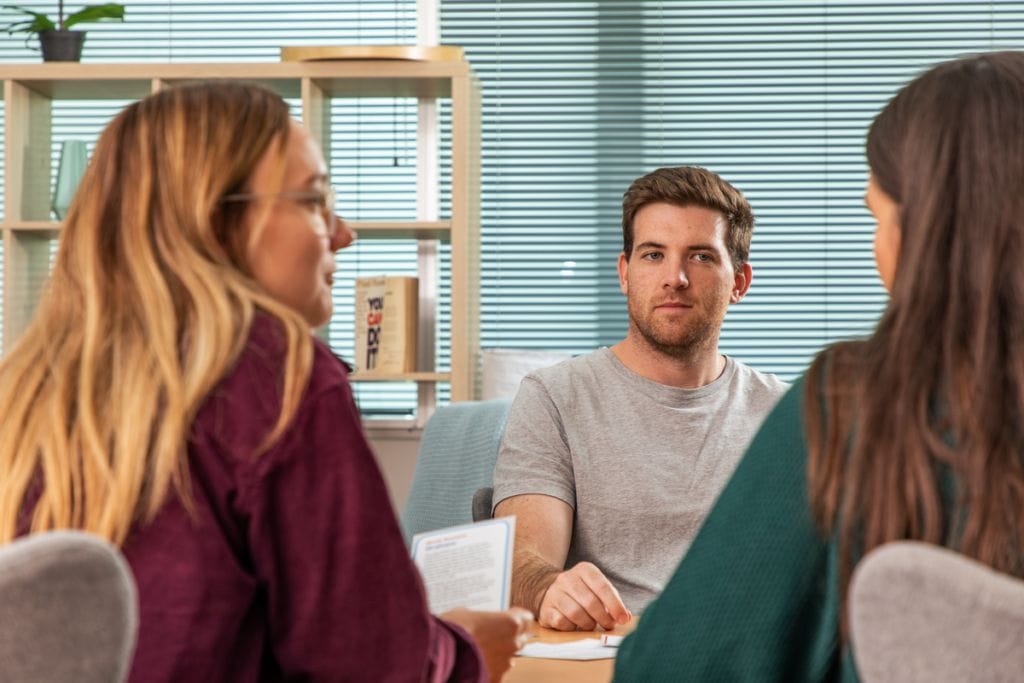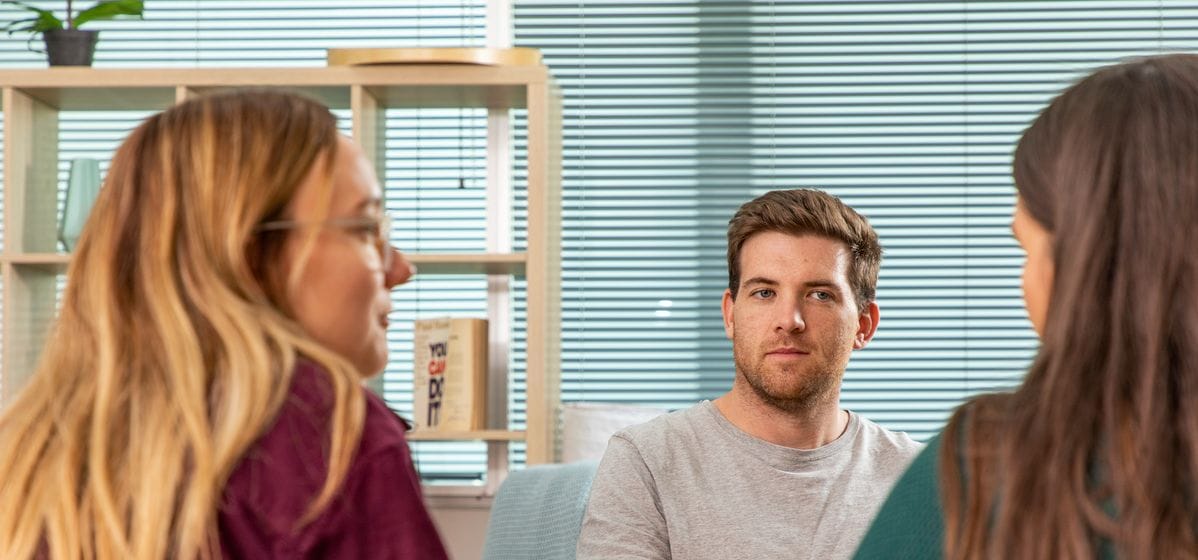St John WA delivers more First Aid for Mental Health in a bid to counter COVID-19 distress
- Almost 4.2 million Australians were affected by a mental health disorder the first full year COVID-19 impacted the nation, climbing 1 million from 2007: ABS.
- St John WA delivered First Aid for Mental Health training to 4260 students since the pandemic began, and in the past year increased numbers by 50 per cent on pre-COVID annual enrolments.
- On World Mental Health Day (10 October), St John asks people to consider whether they could spot mental distress?
St John WA has delivered more First Aid for Mental Health training across Western Australia as part of efforts to address a concerning rise in mental health disorders during COVID-19.
Almost 4.2 million Australians were affected by a mental health disorder – predominantly anxiety – in the 2020 financial year, just after the pandemic struck, according to the latest Australian Bureau Statistics (ABS).
Compared to five years ago, the number of affected Australians had jumped by one million and almost 40 per cent of young people (aged 16-24) were impacted – up 14 per cent on 2007.
Overall, the number of Australians surveyed and those who had experienced a mental health issue in their lifetime had all risen.
St John delivered invaluable skills in spotting the signs and symptoms of mental health issues and developing care strategies to 4260 First Aid for Mental Health students since the 2020 financial year.
In the past year St John First Aid for Mental Health students increased more than 50 per cent on pre-COVID numbers.
St John First Aid for Mental Health trainer Julie Warburton said while the struggles around mental health were not new during COVID-19, they were more pronounced.
“We have found during COVID-19 that many people were talking about their family issues and issues they’ve faced since the pandemic began,” she said.
“Specifically, we’ve seen a lot of discussions about feeling a loss of connection or a sense of isolation within the community.”
Even before the COVID-19 pandemic, one in five Australians reported mental health challenges of some sort. And the total costs of poor mental health on Australia’s economy, government, and society were estimated by the Productivity Commission (2020) at $200-220 billion per year.
The Australia Institute and Centre for Future Work estimates the total annual cost of workplace-associated mental illness is between $15.8 billion and $17.4 billion per year.
St John has been close to 90 per cent capacity for its corporate mental health classes this year.

“In the workplace today, there’s a lot of issues when it comes to mental health and a lot of workplaces are realising they need to address and understand this, and know what people can do about it,” Ms Warburton said.
“We find a lot of people value understanding coping mechanisms to de-stress and strategies to support themselves before things get worse. Ultimately, this helps to prevent anxiety and depression from developing if they can identify this earlier.
“And it’s great to hear the number of men talking about the importance of being self-aware of their own mental health issues and how to care for them.”
On World Mental Health Day (10 October), St John asks people to consider whether they could support others during a mental crisis, or even spot a colleague in mental distress?
St John Head of Wellbeing, Safety and Injury Management and clinical psychologist, Donna Lawrence, says mental health is part of everyone’s life in one way or another and it’s important to have the tools to manage it well.
“This course provides the tools to recognise signs of mental disorders, approach those in need and support people during a mental health crisis. St John trainers also help students better understand how to take care of their own mental health, which is incredibly important,” Ms Lawrence said.
“Our course is great for all adults, from all walks of life, as it has been designed to remove the jargon and provide practical steps for identifying signs and symptoms of someone struggling with mental health through behaviour recognition, body responses and common language. It empowers people to have supportive conversations.”
St John’s First Aid for Mental Health course has also been designed to complement traditional first aid as it helps address the emotional side of responding to an emergency.
It is offered at three metropolitan first aid training locations in Belmont, Fremantle and Perth CBD, as well as six regional centres in Kalgoorlie, Albany, Geraldton, Bunbury, Busselton and Northam.
For more information about the course visit: https://stjohnwa.com.au/first-aid-training/mental-health
